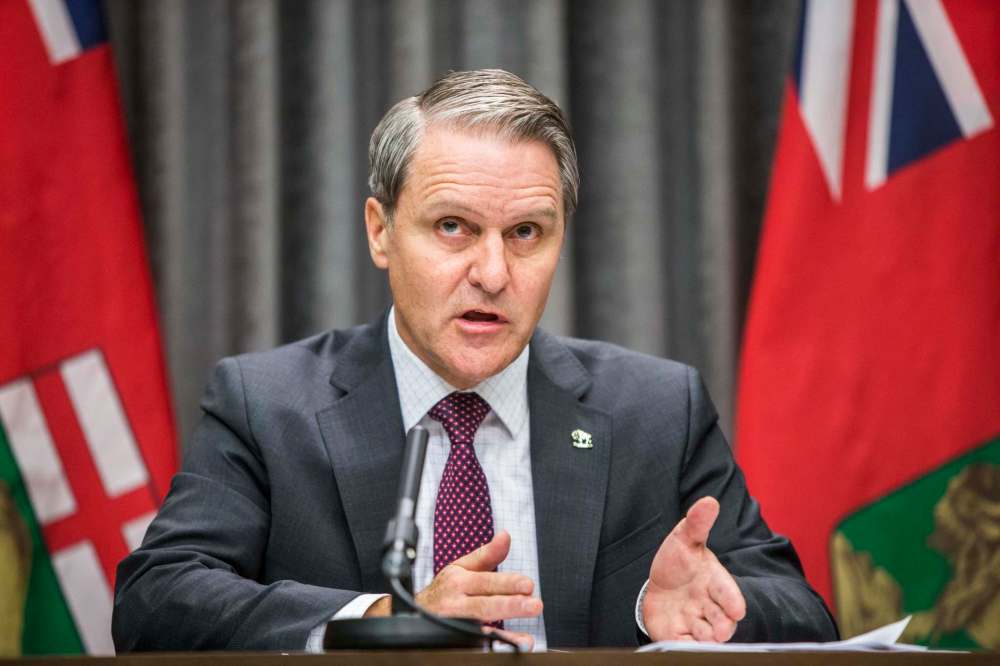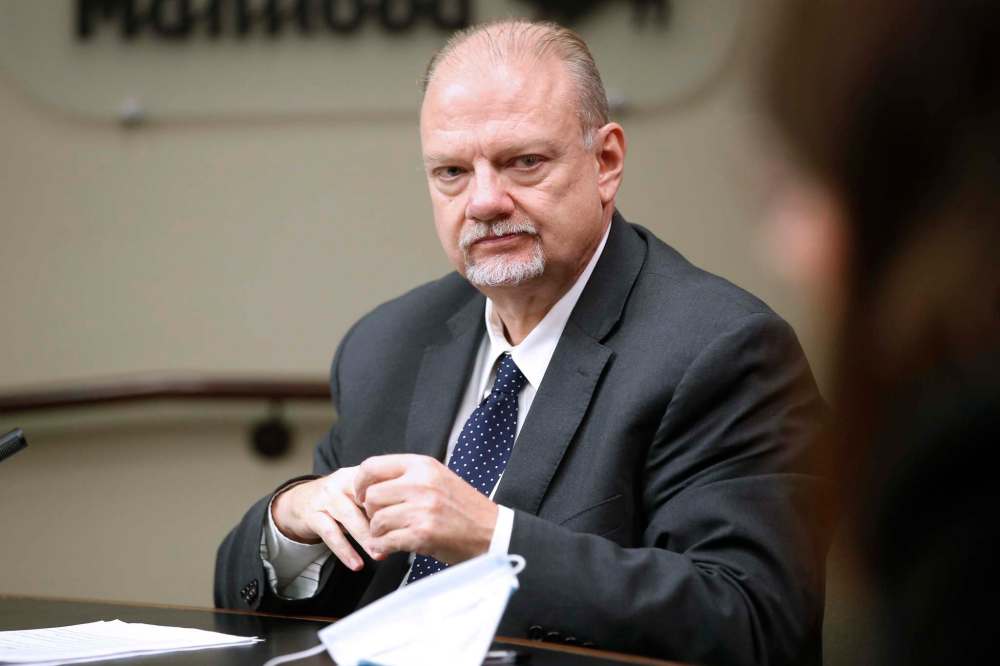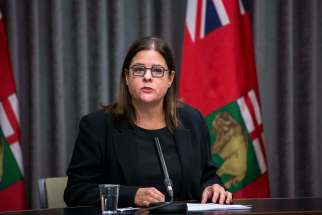Time to unify province’s health portfolio
Read this article for free:
or
Already have an account? Log in here »
To continue reading, please subscribe:
Monthly Digital Subscription
$0 for the first 4 weeks*
- Enjoy unlimited reading on winnipegfreepress.com
- Read the E-Edition, our digital replica newspaper
- Access News Break, our award-winning app
- Play interactive puzzles
*No charge for 4 weeks then price increases to the regular rate of $19.00 plus GST every four weeks. Offer available to new and qualified returning subscribers only. Cancel any time.
Monthly Digital Subscription
$4.75/week*
- Enjoy unlimited reading on winnipegfreepress.com
- Read the E-Edition, our digital replica newspaper
- Access News Break, our award-winning app
- Play interactive puzzles
*Billed as $19 plus GST every four weeks. Cancel any time.
To continue reading, please subscribe:
Add Free Press access to your Brandon Sun subscription for only an additional
$1 for the first 4 weeks*
*Your next subscription payment will increase by $1.00 and you will be charged $16.99 plus GST for four weeks. After four weeks, your payment will increase to $23.99 plus GST every four weeks.
Read unlimited articles for free today:
or
Already have an account? Log in here »
Hey there, time traveller!
This article was published 21/01/2021 (1787 days ago), so information in it may no longer be current.
Reproductive health care is health care.
That point should be obvious and yet, in the view of the current provincial government, the best person to speak to matters of reproductive health is not the health minister, as one might imagine, but rather the minister of sport, culture and heritage, who also happens to be the minister responsible for the status of women.
Premier Brian Pallister’s cabinet shuffle earlier this month actually saw the appointment of not one, but two health ministers: Heather Stefanson is now minister of health, taking the file mid-pandemic from Cameron Friesen, and Audrey Gordon is minister of mental health, wellness and recovery, a new portfolio.

In effect, then, Manitoba now has two health ministers who will not speak to reproductive health care.
Ms. Stefanson is the the first woman to be appointed health minister under the current Progressive Conservative government, but she is upholding the baffling status quo that all questions about reproductive health care will be directed to the minister responsible for the status of women. Past behaviour of ministers on this file suggests this is by design, allowing the health minister to avoid addressing one particular — and politicized — facet of reproductive health care: abortion.
Mr. Friesen came under fire for such artful-dodgery when the abortion drug Mifegymiso was being rolled out across Canada, for declining to answer questions about it. Manitoba was the second-last province in Canada to provide universal access to the $300 two-pill prescription.
His predecessor, Kelvin Goertzen, also avoided discussing the issue and was criticized for speaking at a rally in Steinbach in 2018 aimed at limiting abortion rights.

Deferring questions about reproductive health care to the status of women portfolio makes little sense, especially when considering that the department of health ultimately holds the pocketbook. Reproductive health care — which also includes pre- and post-natal care, birth care, family-planning counselling, safer-sex education, the prevention of sexually transmitted diseases and, yes, abortion care — is an everyone issue, not a “women’s issue.”
Treating half the population as a special-interest group can have real consequences when it comes to identifying health-care spending priorities. It’s easier to move an issue down the priority list if it’s treated as if it doesn’t affect the entire population.
Putting the minister of sport, culture and heritage, who also happens to be the minister responsible for the status of women, in charge of reproductive health is akin to hiding a folder in the subfolder of another completely unrelated folder.
Deferring questions about reproductive health care to the status of women portfolio makes little sense, especially when considering that the department of health ultimately holds the pocketbook.
During the pandemic, Manitobans have increasingly demanded accountability and transparency from the department of health. Matters of reproductive health are no different. Our health-care system must provide care for people as a whole; when distinct aspects of public health are annexed — reproductive health and mental health being the most obvious examples of disciplines being segregated from health in general — people are left at risk of not getting the care they need.
The transparency offered by the current government in this regard is limited to its transparent effort to avoid public discussion of a specific medical procedure. Engaging in such jurisdictional contortions around the word “abortion” only serves to further stigmatize it. Manitobans deserve a unified department of health led by a minister empowered to speak to all issues related to health care — not just the ones with which they are comfortable.






